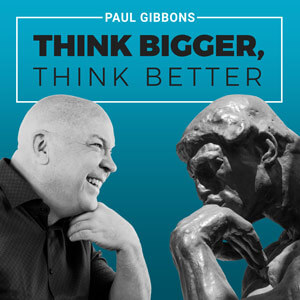
Listen to the Full Episode:

This week on THINK BIGGER, THINK BETTER we are continuing with a theme – populism – which describes aspects of today’s zeitgeist. My guest today, Dr. Arun Swamy, helps break down what populism actually is and how it has manifested throughout history and today.
What most populist movements share is an anti-establishment orientation, a claim to speak for the people against the elites, opposition to liberal economics and globalization, and often (but not always) a penchant for authoritarian governance. Join Dr. Swamy and me as we go deeper into this discussion on today’s populist movements, the contrasting approaches of left-wing and right-wing populism, and the substance behind the movements we see in the U.S., Europe, and the rest of the world.
Dr. Swamy received his Ph.D. in Political Science from the University of California (Berkeley). His research interests include democracy in developing countries, ethnicity and nationalism, political economy and corruption and state-building, and he has published on all these topics. Arun’s dissertation combined these various threads through an examination of populist appeals in Indian politics and he has since extended this argument to Asian politics generally. His special contribution to the study of populism has been the analysis of what he has termed “sandwich coalitions,” an alliance of elites with marginalized groups against the middle.
 What You’ll Learn from this Episode:
What You’ll Learn from this Episode:
- What populism is and what unites these disparate movements.
- The history of populism.
- The economic and cultural drivers of today’s populist movements.
- How populism relates to terms such as: anti-intellectualism, cosmopolitanism, institutions, nationalism, and nativism.
- How Brexit and Trump are typical and how, perhaps, those are corrupted forms of populism.
- If so many movements are captured, is the term useless – that is, how can it help policymakers or political leaders act?
 Featured on the Show:
Featured on the Show:
- Learn more about Dr. Arun Swamy
- Paper on populism from Harvard’s Kennedy School
- Democracy and Its Crisis by A. C. Grayling
- The Retreat of Western Liberalism by Edward Luce
Enjoy The Show?
- Don’t miss an episode, subscribe via iTunes, Stitcher or RSS.
- Leave us a review in iTunes.
- Join the conversation by leaving a comment below!


